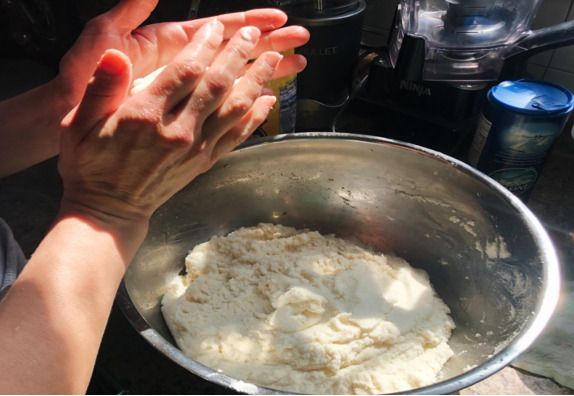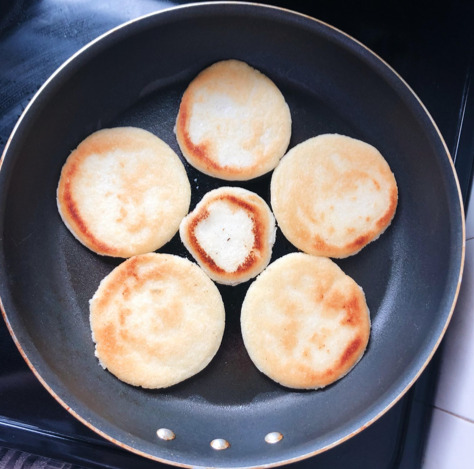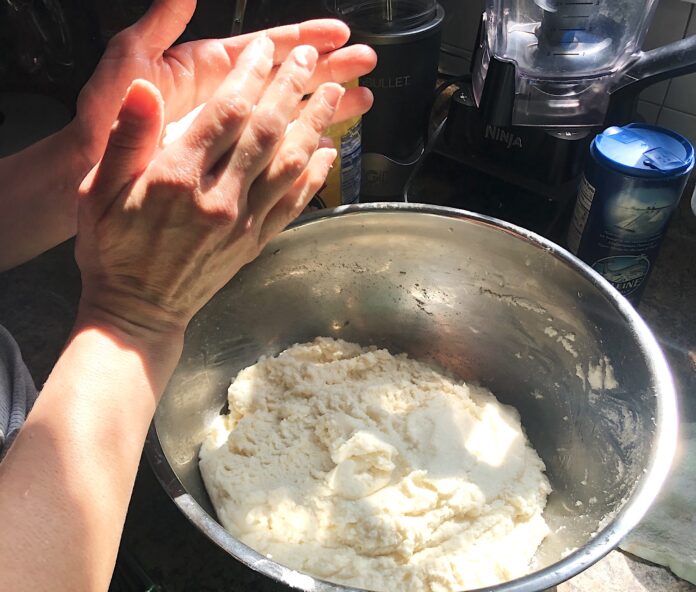
In quarantine, my mom is getting strangely creative – even with her best recipe.
I always thought of arepas as Saturday breakfasts, so good they could only be eaten on special occasions. But now that my mom’s employers have canceled her work shifts, all she has on her hands is time – time she uses to make arepas.
Our table is full of plates with toppings like queso tropical, all types of eggs, butter, tomato, salami and avocado, and the black beans Venezuelans call caraotas.
My mother’s arepas — traditional cornmeal cakes — are perfectly circular, fried to an incredible toast, never too oily, thick enough to slice and stuff, but thin enough to hold in one hand.
In normal times my mom works weekdays, and wakes up early to commute.
She works a lot, but doesn’t get paid much. Even before COVID, she felt the stress and anxiety that came with worrying about paying our bills. I know now, without her work, that she feels that tenfold.
Her escape was always the gym. She’d wake up at 5 every morning and get her workout in. But with the gyms closed, arepa making seems to be her new therapy. She’ll put her headphones on, and listen to a podcast or music, drowning out the constant news of death tolls and rising case counts.
I walked into the kitchen on a Tuesday morning and smelled the familiar smell of an arepa frying. But the arepa in the pan was not the arepa I’d been eating for 20 years. Half of the arepas had flecks of orange in them. Carrot? Others looked like arepa-esque tostones. Platano arepas? What was this?
Mom is getting creative in quarantine – even with her most perfect and famous recipe.
“We have the tendency to eat more chips, chocolates, cookies, and I thought about making something healthy that we would like,” she explained. “My sisters in Venezuela have a lot of experience with surviving in times of difficulty, austerity and scarcity.”
I thought my mom was going crazy to have altered the arepa, but now I see that it had to be changed.
“In Venezuela, they make arepas out of oatmeal, sweet potatoes, carrots,” my mother told me.
“When you live in a constant state of fear and anxiety, the stress of a pandemic just feels normal,” she said. Siempre hemos estado bien. And it’s true, we somehow we’ve always survived.
The arepa is an extension of my mother. Making them is medicinal; a memory of Venezuela, and a reminder of things that can’t be taken away from us. Eating them is curative; bites of my mother’s love that protect me from harm, no matter what those arepas are made of.
Not the new normal

Quarantine is not the new normal. My mom’s arepas will not always have carrots in the dough, or be made out of plantain. She will not always prepare arepas on weekdays.
For now, I can’t blame my mom for her excessive arepa production. This is a time of adjustment. And change can be good. Hell, those platano arepas were the bomb.
Life is different now. We need to be okay with that, and to figure out how to change our traditions to make life feel normal. We need to grow. We need to support our moms when they bake too many muffins, try to make sourdough bread, or make a new type of arepa for breakfast, lunch, and dinner.


